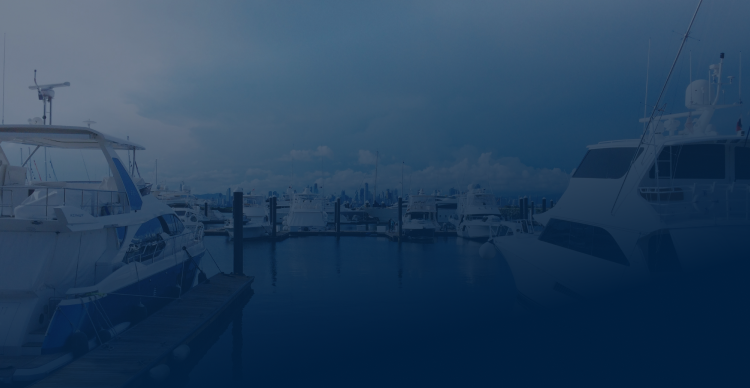Buying a yacht is a big and expensive decision, and no one wants to buy a yacht that is not right for them, especially for newbies. It's normal for newbies to feel anxious and excited about the process of buying a yacht, and if you're new to yachting and are planning to buy one, referring to the key factors to consider when buying a yacht provided in this guide can help you make the right buying decision.

Determine the type of yacht
There are many different types of yachts, and for a newbie to buy the right yacht, you first need to determine the type of yacht you want in order to narrow down your search. Yachts are mainly categorized into three types: monohulls, catamarans and trimarans. Monohulls and catamarans are commonly used for liveaboards, and catamarans have a large living space and shallow draft, but are more expensive than monohulls. Trimarans, on the other hand, are commonly used for racing and are also suitable for ocean-going liveaboards.
Calculating maintenance costs
Buying a large yacht has the advantages of more space and comfortable facilities, but in reality, large yachts are more expensive to maintain; they have more accessories, electronics, parts and trim, and are more expensive to repair, maintain and replace. There are also increased expenses for rigging, sails, deck hardware and moorings and parking. Consider whether you can afford it on your budget when purchasing, and it's usually recommended to set aside 10 per cent of the boat's price each year for maintenance.
Choosing the hull material
Hull material is a key factor to consider when buying a yacht. The main hull materials for yachts are steel, fiberglass, aluminum, wood, carbon fiber and cement iron. Although people have their own preferences for hull materials, they are all suitable for cruising yachts as long as they are properly built and maintained. There are pros and cons to each hull material, and it is important to not only understand the pros and cons before purchasing a yacht, but also to be aware of insurance issues for old yachts and ferro-cement hulls.
Determine the size of the yacht
Smaller yachts are less expensive to buy and maintain but have less space, while larger yachts have more space and amenities but are more expensive to buy and maintain. When buying a yacht, people often think that they need to buy the biggest yacht they can afford, but in reality, bigger is not always better. To determine the right size of yacht for you, you need to take into account factors such as phrase, number of occupants, comfort, maintenance costs and sailing time.
Choosing a yacht design
When buying a yacht for a novice, if you have the means, you can choose a yacht designed by a well-known designer, which these boats are tried and tested to enhance the safety and comfort of sailing on the sea, but also help to preserve the value of the boat. Age is often a factor to consider when looking at models, and some of the durable cruising yachts that were meticulously hand-built in the 1970's may, despite their age, last longer with proper maintenance than yachts that were built for economy and are often rented out.
Understanding the role of the keel
Located at the bottom of a yacht, the keel is a key part of the design of a yacht, keeping it stable and easy to man oeuvre. The inside of the keel is usually filled with ballast such as lead, sand or water, which prevents the yacht from capsizing when sailing in wind and waves. Common types of keels include full fin keel, retractable keel, deep fin keel and bilge keel. Different types of keels also vary in terms of stability, maneuverability and speed. Understanding the differences between them will help in selecting a yacht that suits your sailing needs.
Understanding draft
Draft is the vertical distance from the draft line to the bottom of the hull (keel), which determines the depth of water the yacht needs to be in without hitting bottom. Offshore yachts usually have a deeper draft, at 5-6 feet or more, which can limit how close to shore it can get in certain areas and is a factor to consider when sailing in harbours, island reefs and lagoon areas.
Focus on ease of maintenance of engines and systems
When buying a yacht, look out for ease of maintenance of the engine and various systems, if you can easily and quickly check the alternator, belts, starter motor and other major components, it will be much easier to follow up, most yachts have some places where wiring is hard to find and systems are hard to check but if the engine is easy to access, it will avoid a lot of hassle in the long run.
Consider the safety factor
When a novice is buying a yacht, safety is a key factor to consider when choosing a yacht. Evaluating the safety performance of a yacht can start from these aspects: examining how easy it is to man oeuvre single-handedly, judging the level of protection in the cockpit, checking whether it is safe to store the dinghy, checking whether the stanchions and lifelines are strong and whether the handrails are sufficient, understanding whether the anchor chain is easy to access, checking whether there is a ladder or an open beam for boarding the yacht from the water, clarifying whether the storage position of the life rafts is convenient for crew members to use, and checking whether the yacht is Also check whether manual and emergency bilge pump systems are available.
Ask the previous owner for information
When choosing a yacht, the more information you have, the better. If you are buying a used yacht, ask the previous owner or broker some additional questions to find out how the yacht was built, how it has been sailed and how well it has been maintained. For example, you can ask who built the yacht, if there are any original design plans or construction information, how many owners the yacht has gone through, if maintenance logs have been kept and what places it has sailed to.
Full inspection of the yacht
A thorough inspection of the yacht will give you an idea of the condition of the yacht you are buying and prevent you from buying a faulty boat. It is possible to hire a professional surveyor to carry out a full inspection of the yacht, and they can avoid buying a yacht with obvious or hidden problems, as well as providing a comprehensive report on seaworthiness. When inspecting a yacht, it is best to get the yacht out of the water to get a full view of the hull, rudder, propeller and other components.
Make a reasonable offer
When buying a yacht, you need to first research information about the yacht for sale to understand the target yacht's position in the market. Most sellers are willing to negotiate prices, and buyers can refer to the selling prices of similar yachts to make a reasonable and fair offer. When making an offer to a seller or broker, it is important to remain respectful, honest and courteous while considering how long the yacht has been listed in the market.



